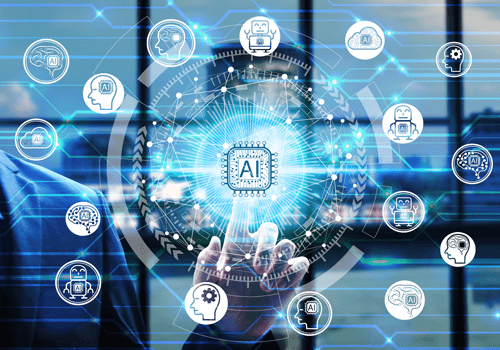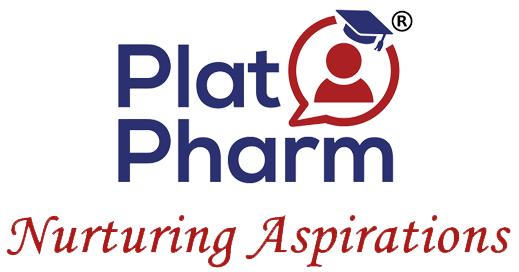
Manufacturing is the sine qua non of the pharmaceutical world. It brings to life all the decisions and innovations born out of hours of research and discussions. Every manufacturer wants to reach the point where their formulation goes from scratch to hatch flawlessly, because a ‘flawless’ output is evidently the only choice for ensuring complete drug efficacy and patient satisfaction.
The pharma industry is constantly upgrading its means and methods to get as close as possible to reach a flawless product. The technological advances witnessed in the world today is helping to speedily further this ascent to perfection.
Over the last five years, the use of artificial intelligence in the pharma and biotech industry has redefined how scientists develop new drugs, tackle diseases, and how the plant efficiency and reliability is being enhanced.
Manufacturing is a very critical component of the pharma sector. This is exemplified by the meticulous processing and stringent tests that are performed to ensure superior quality. Artificial Intelligence, or AI, along with Machine Learning, or ML, are the emerging buzzwords in the manufacturing sector, and for good reason.
AI is the ability of a machine to perform tasks commonly associated with intelligent beings. And ML is the branch of AI focusing on directing a machine to access data and learn processes and outcomes, so that it is able to perform them on its own with improved accuracy.
So, what can AI & ML do for us?
AI shows superiority right from pre-production processes. It helps shorten the design time by predicting outcomes and finding the best production alternatives and methods, which leads to an optimized product. Machine Learning further uses algorithms to make sure that processes are carried out with utmost precision to boost production and minimize errors and losses. This is done by analysis of enormous data sets at an inhuman speed to make crucial predictions and informed decisions on a real-time basis.
AI not only minimizes human error but also allows to streamline production processes. This makes manufacturing more efficient and cost-effective, reduces waste-production and makes the production faster.
To make processes faster, specific process unit operations can be combined using AI. Deep machine learning algorithms can be used to operate equipment simultaneously so that numerous processes can be done at once to save time.
Adding to the list, AI can also be used to detect errors and their root cause so that ‘Out-of-Specification’ (OOS) products are encountered at the minimum. AI driven image recognition and data reconciliation are also employed for quality control and prediction of non-compliances.
This consequently helps in consistently meeting the product’s Critical Quality Attributes (CQAs) and the set guidelines and standards for the formulations, which are extremely important to abide by.
The equipment and machinery in this sector are of paramount importance. Well, AI has got that covered too. With predictive maintenance performed by AI, the functionality of the equipment is kept top-notch, with repair and maintenance being done on time. Any defects are quickly recognized using equipment sensors and worked upon by AI to produce actionable insights and to prevent accidents or manufacture delay. Predictive maintenance can also be used to schedule repair and maintenance cycles.
Since good manufacturing practices (GMPs) are extremely important to consistently produce products of standard quality, it is necessary for manufacturers to make sure that the technological base of their operations complies with the GMPs. Machine learning involves connecting GMPs with AI, in a way that the algorithms can recognise any inconsistency within the process and accurately detect them.
For getting a pharmaceutical product from thoughts to the market, years of research and tests have to be performed. It is a tedious process to find solutions for every aspect of the challenge and then to apply it to a huge batch size.
AI aims to reduce the time and efforts for this process which leads to faster product launches, and that too, at cheaper rates.
All the above-mentioned attributes of AI make it the holy grail not just for the pharma manufacturing sector but for the entire pharmaceutical industry.
The question today is- what can’t AI do for us?
As we move ahead in time, being technologically competent is key to unlock the potential we hold. The pharmaceutical industry is well aware of the possibilities and is taking major leaps towards an AI-driven future.
Currently, integrating our machines with AI technologies is of top priority so that data is analysed and decisions can be made by this technology on a real-time basis. Once we are comfortable with AI, it is sure to steer the course for us in a well-rounded manner.
The use of AI and ML for pharma manufacturing sector in India is still in its nascent stage. To adopt new technologies to traditional set-up of production requires a paradigm change. It is not just the machineries or the tools to adapt to the change, but also means acquiring skilled manpower to embrace this change. While the future looks very promising and looks to open up a range of opportunities in the manufacturing sector, it is still a long road ahead for the pharmaceutical industry in India. However, the shift is likely to be seen soon enough and hence an awareness and readiness to the technological advances is necessary for the new generation of personnel in this sector.
Pharmacists, who will be the in the driver’s seat of this technology, have the opportunity to have a bigger experience in the manufacturing sector, especially if the area of technology and AI interests them. A blend of pharma and technology could help budding pharmacists innovate and explore paths untravelled, gain answers to the unanswered questions and work further for the greater good.
References:1. www.sartorius.com/the-trending-role-of-artificial-intelligence-in-the-pharmaceutical-industry
2. www.expresspharma.in/ai-in-pharma-a-new-perspective
3. www.pharmamanufacturing.com/the-case-for-predictive-maintenance

